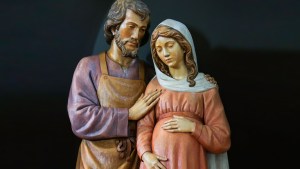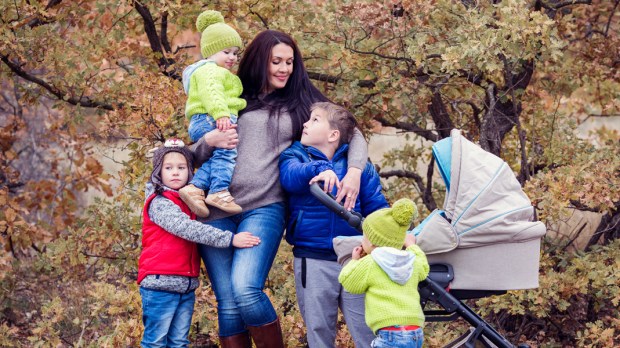Lenten Campaign 2025
This content is free of charge, as are all our articles.
Support us with a donation that is tax-deductible and enable us to continue to reach millions of readers.
Scripture and Church teaching tell us that our children are among life’s greatest blessings, but this message can seem positively counter-cultural in today’s world.
From other sources, we hear that children are a nuisance, a bother, a waste of time and often a torment. It’s no wonder that birth rates are dropping in many places, even before the pandemic escalated the decline.
The Catechism, meanwhile, tells us, “Children are the supreme gift of marriage and contribute greatly to the good of the parents themselves” (1652). But even those of us who believe this may find ourselves forgetting it from time to time.
Certainly this time in world history brings parents unusual challenges. Pandemic restrictions mean that we and our children are home together all the time, without school or work or babysitters or visits with family and friends to bring breaks from each other’s company.
Parents who work outside the home have the additional struggle of trying to fit in work around their children’s virtual learning or homeschooling. In the long to-do lists and scarcity of alone time, it’s easy to feel overwhelmed. We may even start to see our children as an encumbrance, instead of as the greatest blessing God has given us.
Recently I was tempted by some of these negative thoughts myself. Caring for my three small children, on top of the exhaustion and nausea of early pregnancy, had worn me to a frazzle. Even though my husband was doing everything possible to help me, I was starting to worry that I didn’t have what it would take to be a good mother to four little ones.
Sometimes God speaks to us through the books we read, even if they aren’t specifically spiritual works. That’s what happened to me when I stumbled across a moving, ancient story that was assigned reading for my son’s homeschool curriculum.
The story is called “Cornelia’s Jewels.” It tells of a mother in ancient Rome who was tragically widowed when her two sons were very young. With limited resources, she chose to focus her efforts on her sons’ education:
The father’s death was a terrible blow to Cornelia. But she was brave, as well as beautiful and cultured. In those days, the noble ladies of Rome wore beautiful dresses and expensive jewels. Cornelia was not as rich as many of the ladies she knew, but she was a sensible woman. She willingly went without jewels and expensive clothes. She would rather spend her money to educate her sons. She made up her mind that her sons should have the best education that Rome could give. She wanted them to become good, useful men.
This loving mother in ancient Rome has a message for all mothers that echoes across the centuries. One day, Cornelia was hosting a noble and wealthy friend. The woman asked her,
“Is it true, Cornelia, that you have no jewels? Is it true, as I have heard, that you are too poor to own them?” Just then, [Cornelia’s sons] came in from school. “No, I am not poor,” answered the fond mother as she drew her two boys to her side. “Here are my jewels! They are worth more than all the expensive gems you have shown me.”
I must admit that her words brought tears to my eyes. At a moment when I needed encouragement in my vocation, this sweet story spoke directly to my heart.
This is a message I need to keep before me always, as a mother: No worldly treasure is equal to the incomparable gift of my children. Even on the hard days, when they’ve left trails of toys across the house, or can’t seem to stop squabbling, the work of caring for them will be worth it always.
I tried to communicate to my children how much I agreed with Cornelia’s wise words, but they are so young that I wasn’t sure they understood. But the next day, my four-year-old said to me, “I’m your jewel, right, Mommy?” Then I knew that she had understood, at least in part, how precious and valuable she is to me.
I hope that she, and all of my children, will always remember. And if any of us start to forget, we have the timeless story of Cornelia’s jewels to remind us.

Read more:
5 Practical ways to imitate Our Lady’s spiritual motherhood

Read more:
This monastic approach can transform your motherhood

